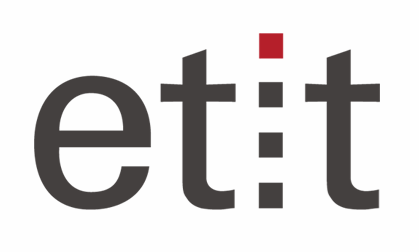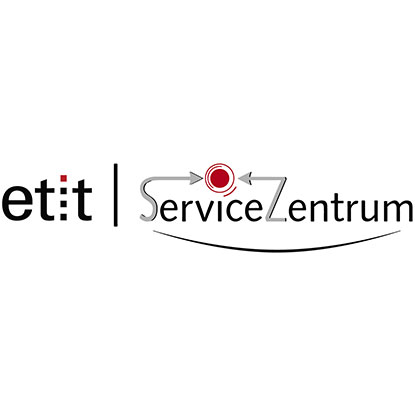Information about the upload of the Examination plans and the module handbooks
Please note that all versions of the Examination plans of the Examination regulations 2014 AND the new Examinations regulations 2023 are accessible via moodle.
- Study brochure etit (opens in new tab) (german only)
- German courses for international students (opens in new tab) (german only)
- Recognised examinations at partner universities abroad (opens in new tab) (german only)
- from summer term 2025: General catalogue of all modules of FB18 (new Exam regulations 2023) (opens in new tab), (DE (opens in new tab))
- Old Module manuals
- Old Exam regulations
- General catalogue of all modules of FB 18 (opens in new tab) (DE (opens in new tab)) Please note: Module manual from summer term 2023
- Module manual Studium Generale (opens in new tab) (DE (opens in new tab)), Please note: Module manual from winter term 2022/23
From now on you can find all downloads in moodle.
Information on the transition PO2014 - PO2023
From the winter semester 2023/24, first-year students will be enrolled in the new examination regulations (PO 2023). Here we inform students in the previous examination regulations (PO 2014) about all important topics concerning the new examination regulations.
Our academic advising team offers assistance with any questions you may have about our degree programmes.
| Name | Contact | |
|---|---|---|
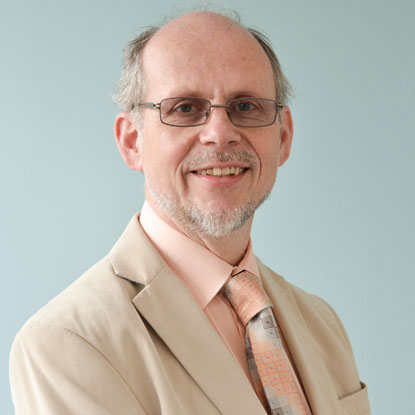
| Dr.-Ing. Andreas Haun Academic Couselling Industrial Engineering etit and on general questions | haun@etit.tu-... +49 6151 16-20211 S3|21 103.0 |
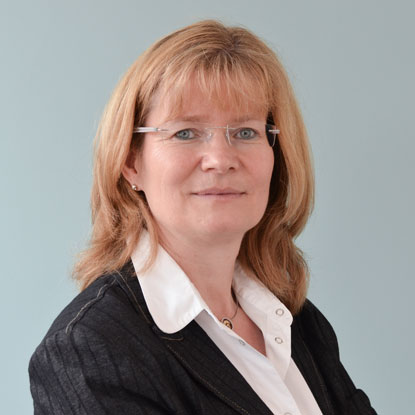
| Dipl.-Biol. Ulrike Gloger Academic Counselling Studying Abroad | international@etit.tu-... +49 6151 16-20243 S3|21 102 |

| Dipl.-Biol. Ulrike Gloger Academic Counselling Information and Communication Engineering | masteroffice@etit.tu-... +49 6151 16-20243 S3|21 102 |
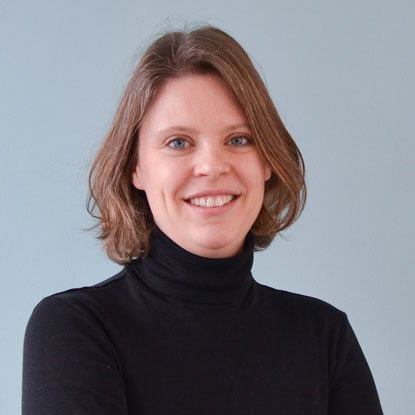
| Melanie Herzog M.A. Academic Counselling Medical Engineering | medizintechnik@etit.tu-... +49 6151 16-20241 S3|21 101.1 |
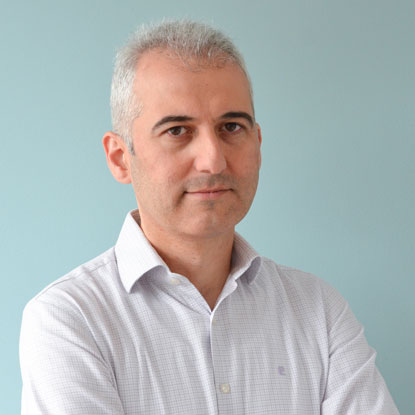
| PD Dr.-Ing. Oktay Yilmazoglu Academic Counselling Electrical Engineering and Information Technology | studienberatung@etit.tu-... +49 6151 16-20218 S3|21 103.2 |

| PD Dr.-Ing. Oktay Yilmazoglu Academic Counselling Mechatronics | studienberatung@mechatronik.tu-... +49 6151 16-20218 S3|21 103.2 |
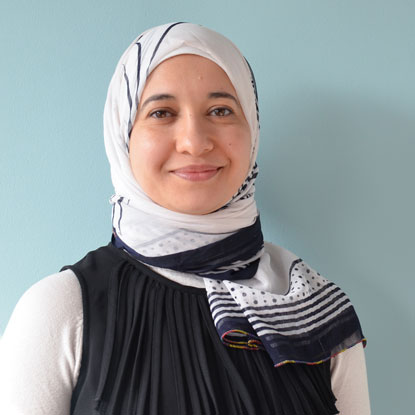
| Dr.-Ing. Emna Zoghlami EP Ayari Academic Counselling Information Systems Technology | studienberatung@ist.tu-... +49 6151 16-20240 S3|21 101 |

| Emna Zoghlami EP Ayari Dr.-Ing. Academic Counselling Energy Science and Engineering | studienberatung@energy.tu-... +49 6151 16-20240 S3|21 101 |
To help you find your way through your studies, we offer events that provide orientation on topics as diverse as choosing a specialisation, trouble shooting, and studying abroad. You can find the current dates of the events in TUCaN.
| Topic | Target group |
| Bachelor | |
|
1. Semester: Introduction to the studies (every winter term) |
|
|
3. Semester: Specializations selection (every winter term) |
|
|
Bachelor-thesis and internships for master studies (every winter term) |
|
| Master | |
|
1. Semester: Introduction to the studies (every summer and winter term) |
|
| General | |
| Effective trouble-shooting |
|
| Study abroad |
|
| Orientation for incoming students |
|
Specialisations and focal points
From your 3rd semester onwards, you can choose a specialisation in your degree programme. The specialisation helps you to specialise in a certain field of your studies. Different specialisations are available depending on the degree programme.
In the “Downloads” section you will find the study plans for all specialisations as well as an overview of all modules that can be taken.
Efficient and sustainable technologies
As soon as a technical system has an actuator or a process has an adjustable parameter, as an automation engineer you ask yourself how the system or process can be made more efficient and intelligent, for example to save resources and energy and therefore costs. This should not only benefit people, but also the environment.
Fields of application
Automation technology covers the following areas
- Robotics: industrial robotics (e.g. robot arms), autonomous driving, other mobile robotics (e.g. fpor transportation), medical robotics
- Control of renewable energy systems: wind and solar power plants
- Industry & plant engineering: process industry optimization (chemical and pharmaceutical industry, oil and gas extraction, metal and paper industry), plant automation, logistics
- Aerospace control systems: aircrafts, satellites, rockets
Focus in teaching
The Bachelor's degree teaches the basics of control engineering, which provides you with a universal set of tools to control any processes and systems, i.e. to control them efficiently and automatically. However, the processes and technical systems must be understood before they can be controlled, which is taught under the heading of modeling and identification. In various internships and project seminars, you will get to know different technical systems, e.g. technical fluid systems, helicopters, airplanes, container cranes, autonomous cars and many more, and then apply controls and automation concepts you have learned to them. In the Master's program, you will learn advanced and modern control methods. You will implement concepts from optimization and artificial intelligence. Here you can flexibly set a wide variety of focal points in your studies: For example, in methods of machine learning, concepts of autonomous driving, fundamentals of image processing or the control of cyber-physical systems.
Occupational fields
The job prospects of automation engineers are as diverse and promising as their fields of application. Whether research, development, planning, organization or sales. Automation engineers are needed and valued everywhere. Do you want to build the autonomous car of tomorrow that can withstand even the most adverse weather conditions? Do you want to design modern hydrogen plants? …make airplanes fly autonomously? …land rockets safely? … develop bioreactors? … ship medicine and vaccines faster? … Make a chemical process more environmentally friendly? The expertise of automation engineers is in demand everywhere. And that's why companies like ESA, Bosch, Evonik, Zeiss, Merck, ABB, Continental, Sirona, Kuka, Porsche, Airbus and many more are always looking for you.
Shaping the digital world
The Data Technology specialization in the Bachelor's/Master's degree program in Electrical Engineering at TU Darmstadt focuses on the theory and application of data processing systems, networks and technologies. It covers aspects of information transmission, data analysis, signal processing, software engineering, embedded system development and circuit technology.
Fields of application
Knowledge from the data technology specialization is in demand in a variety of areas, including telecommunications, Internet of Things (IoT), Industry 4.0, medical technology, autonomous driving, energy transition, artificial intelligence and robotics. Graduates are able to design, implement and optimize complex systems that can process and transmit large amounts of data.
Focus in teaching
The course content covers a wide range of topics, including digital signal processing, coding theory, wireless communication, networks, computer architecture, embedded systems, software engineering, embedded system development, machine learning and big data analysis. Practical exercises, lab work and project work are integral parts of the program to give students hands-on experience and prepare them for real-world challenges.
Occupational fields
Graduates with a specialization in data engineering will find employment opportunities in various industries, including telecommunications companies, software development, IT consulting, the automotive industry, medical technology companies, research institutes and companies in the field of energy transition. Possible job titles include data engineer, system architect, network administrator, signal processing specialist, IoT developer, software and hardware developer for embedded systems and artificial intelligence researcher. In the energy transition, they play a key role in the development and implementation of technologies for the integration of renewable energies, energy efficiency and smart grids.
Model. Solve. Create.
CMEE is concerned with the physical and data-driven modeling, simulation and optimization of electrotechnical phenomena, devices and, where applicable, processes.
Fields of application
Like mathematics or computer science, CMEE is a cross-sectional discipline that primarily teaches methodological skills. These skills are used in the computer-aided optimization of electrical machines or high-voltage arresters as well as in the simulation of biomolecular circuit models in synthetic biology. Electricity price models are also based on probabilistic models and are calculated using numerical methods. In order to do justice to this flexibility in application, the CMEE curriculum provides for a specialization in at least one field of application.
Focus of teaching
The course content covers the fundamentals of scientific computing, e.g. discretization methods for differential equations such as Maxwell's equations, but also data-driven approaches such as machine learning in the context of electrical engineering issues. In these disciplines, TU Darmstadt and the lecturers of the degree program have an excellent track record in research and teaching, e.g. visible through the cross-cutting topic of computational engineering, which was anchored at TU Darmstadt as part of the Excellence Initiative, or through participation in the Hessian Center for Artificial Intelligence.
Occupational fields
Graduates of the CMEE specialization often work as simulation or calculation engineers and carry out virtual computer experiments in the electrical industry using simulation software. However, they also work as software developers who develop and implement complex numerical algorithms, in project management, e.g. in medical technology, as consultants for digitization issues or as founders of IT companies.
Solutions for the energy transition
Electrical power engineering deals with the comprehensive design, generation, distribution and efficient use of electrical energy.
Fields of application
Electrical power engineering is crucial for all areas of life, as electrical energy is the basic requirement of modern society today. Engineers in power engineering are therefore more in demand than ever. The challenge is not only to ensure a secure energy supply, but also to make it economically efficient and environmentally friendly. You play an active role in shaping a sustainable energy supply.
Focus in teaching
Your course content covers all facets from energy generation to consumption. In order to secure the central role of energy supply for technological progress in the future, our students learn the basic technical knowledge required for the generation, transmission and use of electrical energy. However, your courses not only focus on technical aspects, but also place particular emphasis on interdisciplinarity and understanding the technical interrelationships of a wide range of systems, including the use of generation plants and storage facilities by means of optimization, probabilistic models and machine learning.
Occupational fields
The professional fields for our graduates range from energy supply companies, manufacturing industry, transport companies and public institutions to traditional engineering offices. As a qualified engineer, you can work in a variety of areas: from product development and plant planning to as a specialist with personnel responsibility. With your degree from TU Darmstadt, your specialization and interdisciplinarity will make you stand out. In the context of the energy transition, there are many exciting challenges that you can contribute to.
Networking people, devices and industry
The Communication Technology and Sensor Systems specialization deals with new technologies across the entire spectrum from theory, hardware and software to complete systems and networks in order to make communication and sensor technology more efficient. KTS topics are drivers of innovation in many industries.
Fields of application
The specialization is very broadly based, resulting in numerous fields of application with numerous job profiles. Some examples:
- Biomedicine
- Safety engineering
- Semiconductor technology
- Localization and navigation
- Smart and resilient infrastructure
- Machine learning
- Spectroscopy and optical sensor technology
- Microwave and ultra-high frequency technology up to terahertz waves
- Mobile radio and satellite technology
Presentation of the focus areas in teaching
The course content reflects the wide range of the specialization, there is something for everyone. Starting with the theoretical basics of signal processing, communication and information theory, the course quickly moves on to application-oriented topics such as antenna technology, optical and high-frequency components and systems and synthetic biology.
Occupational fields
With a degree with a specialization in KTS in your pocket, you will be spoilt for choice when it comes to your career. Whether you want to work outside your field in finance or as a data technician, in basic research or in a very applied field in industry: many doors are open to you. You are highly qualified for current professions in the information age.
Electrical engineering hardware systems
Today, sensors, actuators and electronics are not separate functional blocks, but are increasingly merging both spatially and functionally (integration).
Fields of application
From complete systems to micro- and nanoelectronics: In the field of sensors, actuators and electronics (SAE), we work with dimensions of several orders of magnitude. Building hardware is just as much a part of our remit as carrying out measurements and calculations. Miniaturized sensors and actuators have become indispensable in automotive, automation and medical technology, whether in airbags, positioning systems or surgical and diagnostic devices.
Focus in teaching
Without a sound knowledge of sensor, material and component properties and physical readout/amplification or signal processing using analog and digital electronics, the design of a sensor system is simply impossible. Our teaching therefore focuses on the theory and application of sensors, actuators and electronics in various areas. We impart knowledge about the design and implementation processes of SAE systems as well as the integration of micro and nano systems. We also offer insights into modern technologies such as electronics, new materials and processes (CAD, 3D printing) as well as innovative design tools and modeling methods.
Occupational fields
SAE makes you a sought-after top specialist for development as well as research. Our students are prepared for a wide range of career paths. You can work in areas such as autonomous driving and electromobility, robotics and artificial intelligence, Industry 4.0 and Internet-of-Things, consumer electronics and communication, medical and biomedical engineering, as well as human-machine interaction and automation technology. Thanks to your in-depth training, you will be able to develop and implement innovative solutions in these forward-looking industries.
Foundations for mobility, robotics and networking
In today's world, devices and applications are increasingly networked and continuously exchange measurement data and information via wireless interfaces in order to coordinate their behavior with regard to common overarching goals. Aspects such as the optimization of communication effort, the coordinated management of available computing, storage and battery resources in the network as well as the efficiency of distributed signal processing, learning and control algorithms play a major role here.
Fields of application
Distributed autonomous systems (VAS), often referred to as multi-agent systems, are used in numerous areas. In logistics, autonomous agents manage stock levels, optimize transport routes and reduce delivery times. In traffic management, autonomous vehicles jointly coordinate the flow of traffic in cities, prevent traffic jams and optimize routes. In intelligent energy systems, decentralized agents optimize energy distribution, monitor energy consumption and integrate renewable energy sources. In smart factories, robotic agents automate and optimize production processes, including assembly, inspection and maintenance. In trading systems, decentralized agents carry out market analyses, develop trading strategies and execute transactions. In telecommunications, agents optimize resource usage, monitor the network, detect anomalies and respond to security threats. In healthcare, agents collect and analyze medical data, support diagnosis and make therapy suggestions. In online recommendation systems, agents personalize users' online shopping experiences, analyse their behaviour, make product recommendations and broker sales. In disaster control, agents coordinate rescue operations, monitor endangered areas and support decision-making in crisis situations. In artificial intelligence, VAS solve problems together and learn from each other while ensuring the security and privacy of local databases.
Focus in teaching
Since the middle of the last century, various fundamental sub-disciplines of electrical engineering, such as communication theory, signal theory, control engineering, information theory, computer science and machine learning theory, have developed independently of each other. With increasing networking and the associated opportunities and challenges in connection with distributed autonomous systems, we are observing a reversal of this development. Together with mathematical optimization and graph theory, these fundamental areas of electrical engineering form the focus of teaching in the VAS specialization.
Occupational fields
Students in the VAS specialization receive a comprehensive education in the above-mentioned fundamental areas of electrical engineering. As part of their scientific studies, they are systematically prepared to make important contributions to networked and distributed systems in a wide range of application areas in research and development both at universities and research institutes and in industry.
The AET specialisation opens up the possibility of combining important study content from several (often exactly two) of the other specialisations. This is illustrated by the following examples:
- Combining Electrical Power Engineering with CMEE to specialise in the calculation of electromagnetic fields in high-voltage engineering applications
- Combining automation technology with SAE in order to incorporate in-depth knowledge of sensor technology, actuators and electronics in mechatronic applications of automation technology
- Combining communication technology and sensor technology with DT in order to acquire special competences in the field of communication networks and software engineering for modern telecommunications applications in addition to the aspects of information theory, communications technology and sensor technology.
In many cases, AET can also be used for study and examination plans within a double degree programme.
Fields of application
These lie at the intersection of the fields of application of the combined specialisations.
Focus in teaching
Theoretical and practical competences of the chosen specialisations, which make it possible to further develop the current technologies in the intersections of these fields of knowledge and application in line with requirements.
Occupational fields
Engineers who have learnt to bridge traditional boundaries between specialist areas and thus create the necessary freedom for a growing interdisciplinary way of thinking and acting that does justice to both the state of the art and technological innovations.
In the Medical Engineering degree programme, you can take courses from four different areas of specialisation from the Master's degree onwards. You do not have to commit to one focus, but can combine the courses of the different focuses as you wish.
Innovative 3D technologies have changed the range of activities of surgeons and dentists as never before in history. However, this does not only affect medical work on patients. In the immediate environment, too, more and more new, mainly engineering-based, occupational fields are emerging in industry, as well as in the hospitals themselves. Applied medical technology is one of the largest industrial growth markets worldwide.
Fields of application
Clinical application of surgical robotics and navigation procedures can be found primarily in the fields of neurosurgical neuronavigation, spinal and pelvic surgery in trauma surgery and oncological urology. In digital dentistry, this mainly concerns dental implantology, jaw reconstruction and the provision of customised dentures.
Focus in teaching
The students gain comprehensive insights into the principles and modes of operation of medical scanning procedures with which 3D patient treatment data are generated, their software-based evaluation, their further use for treatment planning and the technological transfer to the actual treatment situation through navigation, robotics or 3D printing in the clinical application fields of surgery and dentistry. To this end, they are familiarised with the associated medical engineering procedures and device technologies, also through practical exercises and in the clinical environment of patient treatments, in such a way that they can independently develop further questions.
Occupational fields
The career fields that open up lie in almost all engineering subject areas, from electrical, sensor and measurement technology and robotics to computer science and mechanical engineering. A professional activity can later be in industry, e.g. in product development, but also close to clinical application in the context of patient treatment.
Medical imaging and image processing deals with the generation, visualisation, analysis, processing and storage of medical images in digital form.
Fields of application
Important fields of application are computer-aided diagnostics and therapy as well as surgery and radiotherapy. Established image-generating methods include computer tomography, magnetic resonance imaging, other X-ray-based methods and sonography. Methods and algorithms from the fields of graphic data processing, artificial intelligence and signal processing are used to analyse and process the generated images. For visualisation, more and more “augmented reality” and “virtual reality” methods are being used. Standards and procedures from the field of medical information systems are suitable for storing and forwarding image data.
Teaching focus
The focus is on visualising, analysing and processing medical images. Lectures on image and graphic data processing teach the basics for manipulating, transforming and displaying images. In addition, functional principles of image-generating processes with their underlying physical measurement principles are presented and classified with regard to their suitability for specific medical issues.
Lectures on medical image processing and visualisation, on clinical requirements for medical imaging, on the interaction and role distribution of humans and computers in this area, on the basics of augmented and virtual reality as well as on signal processing methods for biomedical applications build on these basics. In addition, there are lectures on topics such as “Deep Learning for Medical Imaging” or “Deep Generative Models”, in which machine learning methods are used. Practical courses, project seminars (POLs) and seminars complement the range of lectures described. They offer students the opportunity for both a practical examination of established methods of medical imaging and processing, as well as research-related participation in the development of future methods in this extraordinarily important and dynamically developing area of medical technology.
Occupational fields
The career fields that open up lie in almost all engineering subject areas – also outside of medical technology in the narrower sense – in which methods of image processing are used. A professional activity can later be in research in the development of basic methods or in industry in product development, but also close to clinical application in the context of patient treatment.
The focus deals with the connection of high-precision miniaturised sensors and actuators with modern signal processing and artificial intelligence methods. The integration of these systems is the basis for increasingly powerful methods in medical diagnostics and therapy. This creates numerous fields of activity for interdisciplinarily trained engineers in a fascinating area of medical technology and one of the largest industrial growth markets worldwide.
Fields of application
Electronic and optical sensors are indispensable for modern medical technology. Their applications range from point-of-care diagnostics with lab-on-chip systems to the characterisation of pathological tissue in hospitals and telemedical support for chronically ill patients at home. In the early diagnosis of diseases, the rapid and inexpensive butgas and biomarker determination for pathological changes is also becoming increasingly important. In therapy, systems of sensors and actuators in combination with neurostimulation and artificial intelligence are now opening up fascinating new ways to restore limited or lost bodily functions.
Teaching focus
In the courses, students learn the basics of the function and manufacture of sensors and the processing of their signals for physiological and molecular variables. Actuators and methods for the feedback of signals in interactive systems and intelligent prostheses form a further core of the focus. Extensive practical relevance is conveyed by participation in everyday clinical practice or in the laboratory as well as work on own development projects in small teams. In this way, they build up the competence to develop medical engineering systems themselves to meet current challenges with the latest technologies and to accompany them in their application.
Occupational fields
The interdisciplinary education opens up career opportunities in many sub-areas of electrical engineering, mechanical engineering and computer science – both at the interface with medicine and on their own. A professional activity can later be in industry, for example in medical technology product development, but also close to clinical application, as a device manager in clinics or in medical technology research.
Radiotherapy is one of the essential tools of cancer therapy. The techniques for the precise irradiation of tumours have been continuously developed and improved for several decades in interdisciplinary cooperation. Technical innovations in recent years have contributed to further advances in patient irradiation. In addition to more compact accelerators, new strategies for beam application and combination with imaging before, during and after the actual therapy are decisive.
Fields of application
The main use of radiotherapy is the local treatment of solid tumours throughout the body, often in combination with chemotherapy or surgery. Most devices in clinical use use compact electron linear accelerators to generate either electron or photon beams that deliver a targeted dose to the patient. However, particle accelerators that generate high-energy protons or ion beams also represent a rapidly growing field.
Focus in teaching
The students gain comprehensive insights into the structure and functional principles of the devices for beam generation from the X-ray tube to the synchrotron and the necessary control and regulation technology for the operation of such facilities. Further contents are the techniques of beam application such as intensity-modulated rotation methods or the scanning of particle beams as well as the basics of inverse radiation planning and the underlying applied informatics. Modern radiotherapy is inconceivable without imaging, so applications in radiation planning, image guidance and patient positioning are explained.
Practical exercises and insights into the clinical environment of patient treatments enable the students to develop further questions independently.
Occupational fields
Radiation therapy offers numerous professional fields, from electrical engineering applications in the production and development of accelerators and beam application to informatics in radiation planning and real-time control technology of the systems to patient-oriented professional fields in the clinics, the so
B.Sc./ M.Sc. MedTech: Important information for participation in all module courses at the Frankfurt-Niederrad Campus (Frankfurt University Hospital)
Information on measles protection according to the German Protection against Infection Act (Infektionsschutzgesetz)
Measles protection according to the Infection Protection Act has been in effect since March 2020 and is mandatory for all students at the Niederrad Campus. This means that you must provide us with proof of your measles protection in order to attend courses.
The aim of the law is to improve individual protection against measles, especially for people who regularly come into contact with others in healthcare facilities. Thus, in the medium to long term, the global goal of the WHO is to completely eliminate measles. More information on this can be found on the pages of the Federal Ministry of Health.
People are considered protected if they have received two measles vaccinations in their lifetime or have serologically proven immune protection.
Please contact your family doctor in this regard. The measles vaccination is usually covered by the statutory health insurance as a catch-up vaccination.
For this purpose, please have your family doctor fill out the measles vaccination form (opens in new tab) and then send it to the following e-mail address: dekanat.medizintechnik@kgu.de
Help for your study organisation with TUCaN


